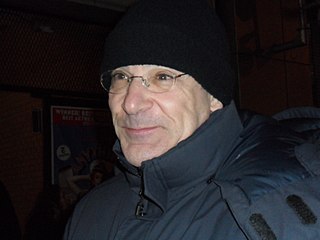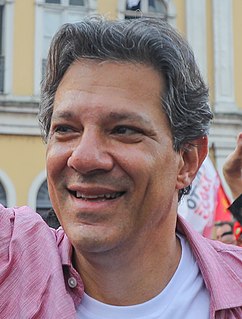A Quote by John Pilger
The Palestinians don't have oil. If they were the Saudis, they wouldn't be in the position they are now. But they have the power of being able to upset the imperial order in the Middle East.
Related Quotes
Israel is the American watchdog in the Middle East, and that's why the Palestinians remain victims of one of the longest military occupations. They don't have oil. If they were the Saudis, they wouldn't be in the position they are now. But they have the power of being able to upset the imperial order in the Middle East.
I think the public is very reluctant to get involved in more foreign wars, especially in the Middle East. And they understand, implicitly, that we go to war in the Middle East because of oil. And if we don't want to go to war in the Middle East, then we have to do something about the oil problem. And I think that view is gaining ground in the U.S.
Palestinians have been banned since forever. And nobody - and it's an unhuman act, and it's a - for me, it's a crime issue. So, nobody has punished Israel ever since they were banning Palestinians. And so, Israel right now feels the power that they can just move on with it, and now they are trying to ban other people that are not Palestinians.
I have for some time now been deeply troubled by the growing difficulties faced by Christian communities in various parts of the Middle East. It seems to me that we cannot ignore the fact that Christians in the Middle East are increasingly being deliberately targeted by fundamentalist Islamist militants.
Turkey, as an ex-imperial power, is all in favor of empires guaranteeing law and order on its borders. Turkey's and America's basic interests with regard to Iraq are identical. They both want a stable and rational Iraq that would use its considerable oil wealth in order to improve its own lot. But there doesn't seem to be very much prospect of that at the moment.































